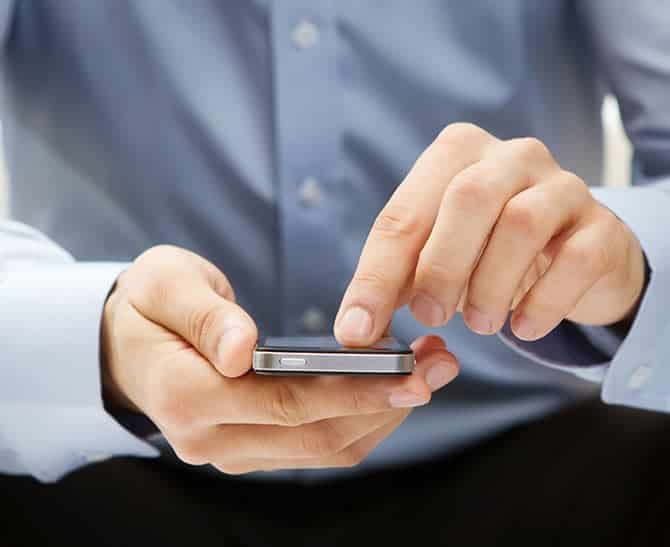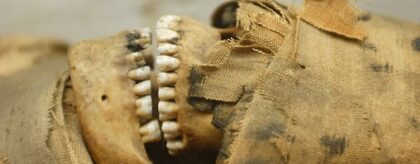Nail Biting – An Overlooked Impulse Control Disorder
Whether it was because you broke a nail in a way that left a sharp or uneven edge, or the length of the nail is uncomfortable and you don’t have access to a nail clipper, or you just don’t like the feel or sound of a file, at some point in your life you’ve bitten your nails. Unfortunately, nail biting can actually cause some health risks many people are unaware of.
What Are Common Triggers for Nail Biting?
There are many triggers for nail biting. Anxiety, boredom and stress are the top three reasons people give when they are asked about their nail biting habits. For example:
- Anxiety – You’re sitting in a waiting room, looking at the stack of year old magazines, tapping your foot and making yourself more anxious. You look at your fingers and notice one nail is uneven compared to the others. Even though you might not care, you just can’t stand the waiting room anymore, so you bring your finger to you mouth and start nibbling.
- Boredom – You’re on a road trip and hit rush hour traffic. You’ve been stuck there for an hour already, and have four more hours of travel before you get to where you’re going. Your fingers are on the steering wheel in front of you, and before you know it, one of them is at your mouth. You’ve finally become bored enough to gnaw those pesky nails right off.
- Stress – Perhaps it’s finals week, or the day of that big presentation at work. Everything comes down to this one exam or presentation. You’ve prepared, worked hard and done more than you thought you could. While you sit waiting for the exam to hit your desk, or for your turn to present your project, you start picking at your cuticles. Then you realize you’ve just made a mess of your finger and you bring your fingernail to your mouth and start biting off the flaking, torn cuticle.
A lesser known reason which is just as destructive is a deep-embedded fear of nail hygiene products. Clippers are the main problem, followed by nail files. There is a thin membrane of skin that grows under the nail along the bed called the quick, and for some people this skin is very sensitive and grows near the same length as the nail. So when they use nail clippers to shorten their nails, it can hurt. However when they bite their nails, people claim to have more control and can remove the quick more comfortably.
Health Risks Associated with Nail Biting
Think about this for a moment: What are the two parts of your body with the highest concentration of germs? You got it – your mouth and your hands. Your fingernails are filthy and your mouth is full of bacteria, so you can just imagine what could happen when the two are in constant contact. By biting your nails, you are opening yourself up to a whole new world of health risks.
Diseases of the Body
There are many different diseases you can give yourself from nail biting. One particularly nasty disease is called paronychia, which is a nasty nail disease that is an often tender bacterial or fungal infection affecting the cuticle and surrounding skin. It can cause the infected area to not only be painful, but also become red, swollen and the infected nails can even crack and bleed. There are even cases where the fungal version of this infection can become chronic.
Diseases of the Mouth
Imagine you’re gnawing on a fingernail and a piece splits off into your mouth. What was laying under that piece of nail? Dirt and grime from places you’ve been, and from scratching yourself or perhaps a pet. Gross, right? Now imagine that nail piece sitting in your mouth, even for a second before you spit it out. Guess what. In just that second of time it transferred all that bacteria from under your nails from the entire day into your mouth. If that piece of nail happens to scratch your gums, it will even enter your blood stream and within seconds, that bacteria is floating around your entire body.
After the nail scratches you, a few days later, you’re noticing your gums seem a bit sensitive, maybe red or swollen. This is due to a budding infection swimming around in the blood vessels of your mouth. That infection can eventually lead to the dreaded gingivitis. Also, remember that nasty sounding infection mentioned above called Paronychia? You can easily pass that nail infection into your mouth too.
Effects of Nail Biting on Your Teeth
Nail biting can cause damage to the structure of your teeth and their alignment. The hard surface of the nail can eventually wear away the enamel, making teeth much more susceptible to decay, chips and cracks. Nail biting also eventually causes misalignment of the teeth, and can even damage existing dental work. In fact, it is estimated by the Academy of National Dentistry that nail biters incur an additional $4,000 worth of dental repairs throughout their lives compared to those who are not habitual nail biters.
Breaking the Bad Habit of Nail Biting
There are many different and effective ways to help stop this dangerous and sometimes expensive habit. It takes a lot of mental control and discipline, but so many people stop their nail biting for good. Sometimes it’s as simple as finding a healthier, less destructive way to redirect your emotion, be it stress, anxiety or boredom. Instead of nail biting, try carrying a pack of sugarless gum and chewing a piece when you get a bad urge to bite your nails. Below are some other ways to put an end to your nail biting.
- Enlist a friend to point out when you are biting your nails to become conscious of the bad habit.
- Keep your nails groomed through manicures – at home or at a salon – to prevent having uneven or messy looking nails that need “fixing.”
- Apply a deterrent specifically designed to help nail biters. These are creams, nail polishes or oils that startle you with a bitter taste.***
- Distract yourself. As stated above with the gum, try finding other ways to channel that energy that causes your nail biting. Other good, healthy options are using stress balls or finding a hobby to keep your hands busy such as knitting or painting.
- You can seek treatment if everything you try fails. Call your doctor if you are out of at home treatment options.
***There are many of these deterrents at your local pharmacy shop, such as Walgreens or CVS. Here are a few:




